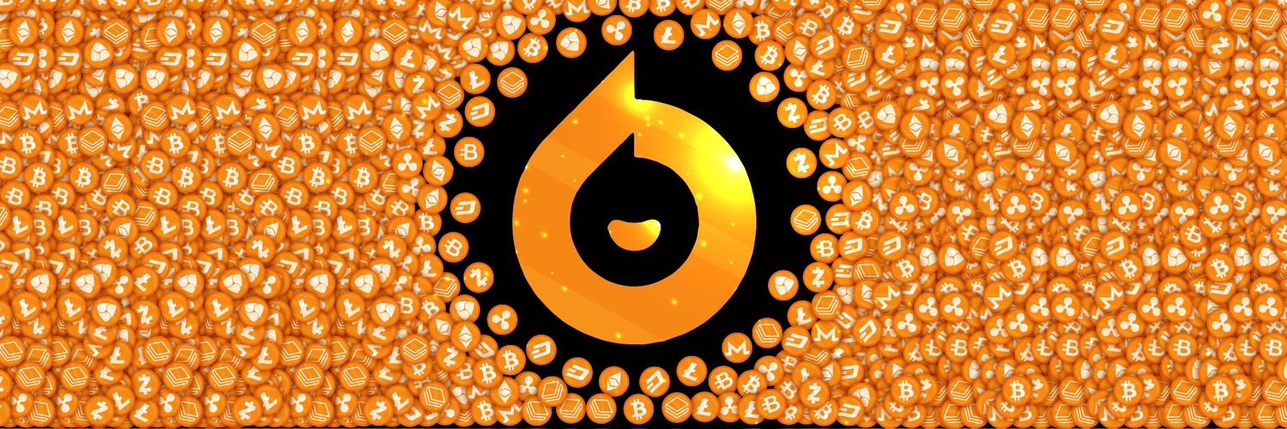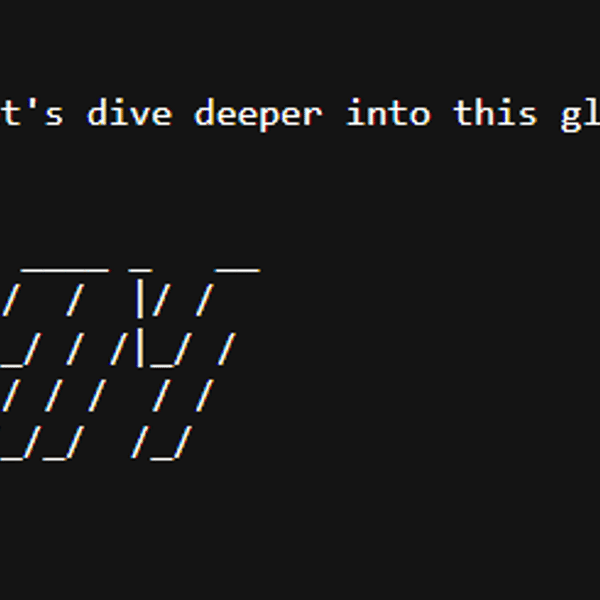Bitget: Ranked top 4 in global daily trading volume!
BTC dominance62.24%
New listings: Pi
Hot BTC ETF : IBIT
BTC/USDT$104493.01 (+1.29%)Fear and Greed Index70(Greed)
Altcoin season index:0(Bitcoin season)
Total spot Bitcoin ETF netflow +$321.4M (1D); +$2.02B (7D).Welcome gift package for new users worth 6200 USDT.Claim now
Trade anytime, anywhere with the Bitget app. Download now
Bitget: Ranked top 4 in global daily trading volume!
BTC dominance62.24%
New listings: Pi
Hot BTC ETF : IBIT
BTC/USDT$104493.01 (+1.29%)Fear and Greed Index70(Greed)
Altcoin season index:0(Bitcoin season)
Total spot Bitcoin ETF netflow +$321.4M (1D); +$2.02B (7D).Welcome gift package for new users worth 6200 USDT.Claim now
Trade anytime, anywhere with the Bitget app. Download now
Bitget: Ranked top 4 in global daily trading volume!
BTC dominance62.24%
New listings: Pi
Hot BTC ETF : IBIT
BTC/USDT$104493.01 (+1.29%)Fear and Greed Index70(Greed)
Altcoin season index:0(Bitcoin season)
Total spot Bitcoin ETF netflow +$321.4M (1D); +$2.02B (7D).Welcome gift package for new users worth 6200 USDT.Claim now
Trade anytime, anywhere with the Bitget app. Download now



Virtuals Protocol PriceVIRTUAL
Listed
Quote currency:
USD
The VIRTUALUSDT spot trading pair and futures trading pair had been launched. VIRTUAL trading bots has aslo be available.
$1.92-3.02%1D
VIRTUAL to USD converter
VIRTUAL
USD
1 VIRTUAL = 0.00 USD
Bitget offers the lowest transaction fees among all major trading platforms. The higher your VIP level, the more favorable the rates.
Price Chart
TradingView
Market cap
Virtuals Protocol price chart (VIRTUAL/USD)
Last updated as of 2025-05-11 19:21:28(UTC+0)
Market cap:$1,251,148,142.07
Fully diluted market cap:$1,251,148,142.07
Volume (24h):$357,626,165.29
24h volume / market cap:28.58%
24h high:$2.04
24h low:$1.88
All-time high:$5.07
All-time low:$0.007606
Circulating supply:652,580,030 VIRTUAL
Total supply:
1,000,000,000VIRTUAL
Circulation rate:65.00%
Max supply:
1,000,000,000VIRTUAL
Price in BTC:0.{4}1833 BTC
Price in ETH:0.0007618 ETH
Price at BTC market cap:
$3,183.73
Price at ETH market cap:
$465.57
Contracts:
0x0b3e...24e7E1b(Base)
More
How do you feel about Virtuals Protocol today?
Note: This information is for reference only.
About Virtuals Protocol (VIRTUAL)
What Is Virtuals Protocol?
Virtuals Protocol is an AI and Metaverse Protocol launched in 2024. It is designed to revolutionize virtual interactions by creating hyper-personalized and immersive experiences. Virtuals Protocol focuses on integrating advanced AI agents into various digital environments such as gaming, metaverses, and online interactions. The protocol leverages decentralization to foster creativity, diversity, and trust, ensuring that virtual engagements are not only innovative but also equitable for all participants involved.
The transition to virtual spaces is inevitable, and Virtuals Protocol aims to lead this transformation by making virtual interactions more engaging and lifelike. By utilizing generative AI and multimodal outputs (text, sound, visuals), Virtuals Protocol enhances personalization and immersion, making every virtual experience a unique journey. This approach not only enriches user experiences but also creates new economic opportunities for developers, creators, and users within the ecosystem.
Resources
Official Documents:
https://whitepaper.virtuals.io/
Official Website:
https://www.virtuals.io/
How Does Virtuals Protocol Work?
Virtuals Protocol operates through a decentralized ecosystem that incentivizes the creation and use of AI agents, known as VIRTUALs. These agents can perform complex, multimodal interactions, thanks to their integration of various specialized cores, including the Cognitive Core, Voice and Sound Core, and Visual Core. This structure allows VIRTUALs to behave like characters from intellectual properties, perform specific tasks, or even act as digital versions of individuals, enhancing both entertainment and utility in virtual spaces.
The ecosystem is built on two main layers: the Protocol Layer and the DApp Layer. The Protocol Layer serves as a model hub, providing foundational AI models and algorithms that developers can access and build upon. Contributors provide data and develop models, while validators ensure the quality and authenticity of these inputs. The DApp Layer, on the other hand, focuses on the practical application of these AI models, allowing decentralized applications (DApps) to integrate VIRTUALs seamlessly. This integration is facilitated by a developer-friendly Software Development Kit (SDK), which simplifies the process of incorporating advanced AI features into various DApp environments.
Economic incentives play a crucial role in sustaining the Virtuals Protocol ecosystem. Contributors and validators are rewarded with VIRTUAL tokens for their efforts, ensuring a continuous influx of high-quality data and models. The protocol also employs a buyback scheme where revenue generated from DApps is used to repurchase VIRTUAL tokens, maintaining the token's value and stability. This self-sustaining cycle, known as the Virtual-ous Flywheel, ensures that the ecosystem remains vibrant and productive.
What Is VIRTUAL Token?
VIRTUAL is the utility and governance token of the Virtuals Protocol ecosystem. It serves multiple functions, including incentivizing contributions, supporting development decisions, and managing the protocol’s treasury. Token holders can stake their VIRTUAL tokens to influence which AI agents receive development support, ensuring that resource allocation aligns with community interests.
VIRTUAL tokens also facilitate a buyback scheme, where a portion of the revenue generated from DApps is used to repurchase tokens from the open market. This mechanism helps maintain the token’s value and supports the protocol’s long-term sustainability. Additionally, VIRTUAL token holders benefit from airdrops related to new token offerings within the ecosystem, further encouraging long-term engagement and participation. VIRTUAL has a total supply of 1 billion tokens.
What Determines Virtuals Protocol’s Price?
The price of Virtuals Protocol (VIRTUAL) is influenced by a combination of supply and demand dynamics, market sentiment, and the latest news in the blockchain and Web3 space. Factors such as increased adoption of Virtuals Protocol in decentralized applications (DApps), positive cryptocurrency trends, and strategic partnerships can drive demand and subsequently boost the token's value. Conversely, market volatility, changes in cryptocurrency regulation, and overall sentiment in the cryptocurrency market can impact the price. Keeping an eye on VIRTUAL cryptocurrency charts and performing regular
cryptocurrency analysis can provide insights into potential price movements.
In addition to these factors, cryptocurrency price prediction models and expert analysis can help investors gauge the future performance of the VIRTUAL token. The token's price is also affected by the protocol's tokenomics, including the buyback scheme and token distribution strategies. As the ecosystem grows and more DApps utilize VIRTUALs, the token's value may increase, making it potentially the best crypto investment for 2024 and beyond. However, investors should be mindful of cryptocurrency risks and market volatility, ensuring they stay informed about the latest developments and trends within the Virtuals Protocol ecosystem.
For those interested in investing or trading Virtuals Protocol, one might wonder: Where to buy VIRTUAL? You can purchase VIRTUAL on leading exchanges, such as Bitget, which offers a secure and user-friendly platform for cryptocurrency enthusiasts.
AI analysis report on Virtuals Protocol
Today's crypto market highlightsView report
Today's Virtuals Protocol price performance summaryView report
Virtuals Protocol project analysis reportView report
Live Virtuals Protocol Price Today in USD
The live Virtuals Protocol price today is $1.92 USD, with a current market cap of $1.25B. The Virtuals Protocol price is down by 3.02% in the last 24 hours, and the 24-hour trading volume is $357.63M. The VIRTUAL/USD (Virtuals Protocol to USD) conversion rate is updated in real time.
Virtuals Protocol Price History (USD)
The price of Virtuals Protocol is +1400.01% over the last year. The highest price of VIRTUAL in USD in the last year was $5.07 and the lowest price of VIRTUAL in USD in the last year was $0.02018.
TimePrice change (%) Lowest price
Lowest price Highest price
Highest price 
 Lowest price
Lowest price Highest price
Highest price 
24h-3.02%$1.88$2.04
7d+16.63%$1.28$2.17
30d+262.42%$0.5233$2.17
90d+55.40%$0.4248$2.17
1y+1400.01%$0.02018$5.07
All-time+1816.87%$0.007606(2024-01-23, 1 years ago )$5.07(2025-01-02, 130 days ago )
What is the highest price of Virtuals Protocol?
The all-time high (ATH) price of Virtuals Protocol in USD was $5.07, recorded on 2025-01-02. Compared to the Virtuals Protocol ATH, the current price of Virtuals Protocol is down by 62.20%.
What is the lowest price of Virtuals Protocol?
The all-time low (ATL) price of Virtuals Protocol in USD was $0.007606, recorded on 2024-01-23. Compared to the Virtuals Protocol ATL, the current price of Virtuals Protocol is up by 25105.66%.
Virtuals Protocol Price Prediction
What will the price of VIRTUAL be in 2026?
Based on VIRTUAL's historical price performance prediction model, the price of VIRTUAL is projected to reach $2.1 in 2026.
What will the price of VIRTUAL be in 2031?
In 2031, the VIRTUAL price is expected to change by +32.00%. By the end of 2031, the VIRTUAL price is projected to reach $4.63, with a cumulative ROI of +141.06%.
FAQ
What is Virtuals Protocol and why might its price change?
Virtuals Protocol is a blockchain project that focuses on decentralizing virtual goods and assets. Its price might change due to several factors, including developments within its ecosystem, market sentiment, regulatory news, and broader crypto market trends.
How can I buy Virtuals Protocol tokens?
You can buy Virtuals Protocol tokens on various cryptocurrency exchanges, such as Bitget Exchange. Make sure to research and use a platform that supports this specific token.
What is the current price of Virtuals Protocol?
The current price of Virtuals Protocol can be found on market tracking websites or platforms like Bitget Exchange. Prices fluctuate frequently, so it's best to check these sources for the most up-to-date information.
What factors should I consider before investing in Virtuals Protocol?
Before investing in Virtuals Protocol, consider factors like the project’s technology, team, use cases, community support, market trends, and your own risk tolerance. Comprehensive research is essential.
Why is Virtuals Protocol's price so volatile?
Virtuals Protocol's price is volatile because it is influenced by speculations, market sentiment, regulatory updates, technology developments, and trading volumes on exchanges like Bitget Exchange.
Has Virtuals Protocol experienced any significant price movements in the past?
Virtuals Protocol may have experienced significant price movements due to major announcements, partnerships, or changes in the overall cryptocurrency market. Historical data can be checked on exchanges like Bitget Exchange.
What is the future price prediction for Virtuals Protocol?
Predicting the future price of Virtuals Protocol is challenging due to the volatile nature of cryptocurrencies. However, analysts may provide forecasts based on technical analysis, market trends, and project developments.
How does Virtuals Protocol's supply impact its price?
The supply of Virtuals Protocol can impact its price. If the supply is limited and demand increases, the price might go up. Conversely, an increase in supply without corresponding demand might depress the price.
What role do media and news play in the price of Virtuals Protocol?
Media and news can significantly impact the price of Virtuals Protocol by influencing public perception and investor sentiment. Positive news might drive prices up, while negative news can lead to declines.
Is Virtuals Protocol a safe investment?
The safety of investing in Virtuals Protocol depends on various factors, including market conditions and personal risk tolerance. As with all cryptocurrencies, investments come with risks and potential rewards. Diversification and thorough research are advised.
What is the current price of Virtuals Protocol?
The live price of Virtuals Protocol is $1.92 per (VIRTUAL/USD) with a current market cap of $1,251,148,142.07 USD. Virtuals Protocol's value undergoes frequent fluctuations due to the continuous 24/7 activity in the crypto market. Virtuals Protocol's current price in real-time and its historical data is available on Bitget.
What is the 24 hour trading volume of Virtuals Protocol?
Over the last 24 hours, the trading volume of Virtuals Protocol is $357.63M.
What is the all-time high of Virtuals Protocol?
The all-time high of Virtuals Protocol is $5.07. This all-time high is highest price for Virtuals Protocol since it was launched.
Can I buy Virtuals Protocol on Bitget?
Yes, Virtuals Protocol is currently available on Bitget’s centralized exchange. For more detailed instructions, check out our helpful How to buy virtual-protocol guide.
Can I get a steady income from investing in Virtuals Protocol?
Of course, Bitget provides a strategic trading platform, with intelligent trading bots to automate your trades and earn profits.
Where can I buy Virtuals Protocol with the lowest fee?
Bitget offers industry-leading trading fees and depth to ensure profitable investments for traders. You can trade on the Bitget exchange.
Virtuals Protocol news
See more
Virtuals Protocol updates
Virtuals Protocol Market
Virtuals Protocol Holdings
Virtuals Protocol holdings distribution matrix
Virtuals Protocol holdings by concentration
Whales
Investors
Retail
Virtuals Protocol addresses by time held
Holders
Cruisers
Traders
Live coinInfo.name (12) price chart

Global Virtuals Protocol Prices
How much is Virtuals Protocol worth right now in other currencies? Last updated: 2025-05-11 19:21:28(UTC+0)
VIRTUAL to MXN
Mexican Peso
Mex$37.27VIRTUAL to GTQGuatemalan Quetzal
Q14.77VIRTUAL to CLPChilean Peso
CLP$1,791.96VIRTUAL to UGXUgandan Shilling
Sh7,032.28VIRTUAL to HNLHonduran Lempira
L49.89VIRTUAL to ZARSouth African Rand
R34.89VIRTUAL to TNDTunisian Dinar
د.ت5.78VIRTUAL to IQDIraqi Dinar
ع.د2,509.16VIRTUAL to TWDNew Taiwan Dollar
NT$58VIRTUAL to RSDSerbian Dinar
дин.199.63VIRTUAL to DOPDominican Peso
RD$112.79VIRTUAL to MYRMalaysian Ringgit
RM8.25VIRTUAL to GELGeorgian Lari
₾5.26VIRTUAL to UYUUruguayan Peso
$80.11VIRTUAL to MADMoroccan Dirham
د.م.17.74VIRTUAL to OMROmani Rial
ر.ع.0.74VIRTUAL to AZNAzerbaijani Manat
₼3.26VIRTUAL to SEKSwedish Krona
kr18.62VIRTUAL to KESKenyan Shilling
Sh247.95VIRTUAL to UAHUkrainian Hryvnia
₴79.76- 1
- 2
- 3
- 4
- 5
How to buy Virtuals Protocol(VIRTUAL)

Create Your Free Bitget Account
Sign up on Bitget with your email address/mobile phone number and create a strong password to secure your account.

Verify Your Account
Verify your identity by entering your personal information and uploading a valid photo ID.

Convert Virtuals Protocol to VIRTUAL
Choose from cryptocurrencies to trade on Bitget.
Learn moreTrade VIRTUAL perpetual futures
After having successfully signed up on Bitget and purchased USDT or VIRTUAL tokens, you can start trading derivatives, including VIRTUAL futures and margin trading to increase your income.
The current price of VIRTUAL is $1.92, with a 24h price change of -3.02%. Traders can profit by either going long or short onVIRTUAL futures.
Join VIRTUAL copy trading by following elite traders.
After signing up on Bitget and successfully buying USDT or VIRTUAL tokens, you can also start copy trading by following elite traders.
New listings on Bitget
New listings
Buy more
Where can I buy Virtuals Protocol (VIRTUAL)?
Buy crypto on the Bitget app
Sign up within minutes to purchase crypto via credit card or bank transfer.
Video section — quick verification, quick trading

How to complete identity verification on Bitget and protect yourself from fraud
1. Log in to your Bitget account.
2. If you're new to Bitget, watch our tutorial on how to create an account.
3. Hover over your profile icon, click on “Unverified”, and hit “Verify”.
4. Choose your issuing country or region and ID type, and follow the instructions.
5. Select “Mobile Verification” or “PC” based on your preference.
6. Enter your details, submit a copy of your ID, and take a selfie.
7. Submit your application, and voila, you've completed identity verification!
Cryptocurrency investments, including buying Virtuals Protocol online via Bitget, are subject to market risk. Bitget provides easy and convenient ways for you to buy Virtuals Protocol, and we try our best to fully inform our users about each cryptocurrency we offer on the exchange. However, we are not responsible for the results that may arise from your Virtuals Protocol purchase. This page and any information included are not an endorsement of any particular cryptocurrency. Any price and other information on this page is collected from the public internet and can not be consider as an offer from Bitget.
VIRTUAL to USD converter
VIRTUAL
USD
1 VIRTUAL = 1.92 USD
Bitget offers the lowest transaction fees among all major trading platforms. The higher your VIP level, the more favorable the rates.
Virtuals Protocol ratings
Average ratings from the community
4.6
This content is for informational purposes only.
Bitget Insights

Mb_Balami
6h
$SHM: A Glimpse into the Future of Cryptocurrency
1. Introduction to Shardeum ($SHM)
Shardeum ($SHM) is a blockchain project that leverages dynamic state sharding to offer linear scalability, low fees, and decentralized security. Positioned as an innovative Layer 1 solution, it aims to solve the blockchain trilemma (scalability, security, decentralization) while providing a seamless environment for decentralized applications (dApps).
---
2. $SHM’s Role in the Future of Crypto
Scalability:
One of the biggest challenges for cryptocurrency networks is scalability. Shardeum’s unique approach, dynamic state sharding, allows the network to scale linearly as more nodes are added. This feature could redefine how blockchain networks handle an increasing number of transactions, offering near-infinite scalability.
Low Transaction Costs:
By utilizing state sharding and optimizing its consensus mechanism, Shardeum ensures that transaction fees remain low, even as adoption increases. This makes it an attractive option for dApp developers and users who are concerned about the high costs associated with other blockchains like Ethereum.
Decentralization at Scale:
Unlike many scaling solutions that compromise decentralization, Shardeum maintains true decentralization through its unique architecture. Its approach ensures that as more participants join, the network becomes more secure and efficient, creating a foundation for long-term growth in the crypto space.
---
3. Core Features & Technological Innovation
Dynamic State Sharding:
Shardeum’s most important feature is its dynamic state sharding. This means that as more nodes are added to the network, the processing power increases, maintaining a high level of scalability without affecting performance. It also ensures that the network remains decentralized, a crucial element for its long-term success.
EVM Compatibility:
Shardeum is fully compatible with the Ethereum Virtual Machine (EVM), enabling developers to easily port over dApps from Ethereum. This makes it easier for projects and developers to migrate to Shardeum without having to learn new tools or rewrite smart contracts.
Sustainability:
The blockchain’s proof-of-stake consensus mechanism offers energy efficiency while still maintaining security, appealing to the growing demand for environmentally sustainable technologies in the crypto world.
---
4. Market Potential & Competitive Landscape
Current Market Standing:
$SHM is relatively new compared to other major Layer 1 blockchains like Ethereum, Solana, and Avalanche. However, its unique scalability and low-fee structure give it a competitive edge. As demand for more efficient blockchain solutions grows, Shardeum has the potential to capture significant market share.
Competition:
Shardeum faces competition from other scalability-focused blockchain projects, such as Solana and Avalanche, which also offer high throughput and low transaction fees. However, Shardeum’s dynamic sharding technology and its focus on decentralization could allow it to carve out a niche in the evolving market.
---
5. $SHM’s Long-Term Vision
Ecosystem Growth:
As Shardeum continues to develop its ecosystem, the adoption of decentralized applications and protocols will be crucial. The ongoing expansion of dApp development and partnerships with Web3 projects will be key indicators of $SHM’s future success.
Governance & Decentralization:
$SHM’s future also hinges on the growth of its community and governance. The inclusion of $SHM token holders in decision-making processes will increase decentralization and ensure the network evolves in line with community needs.
---
6. Risks & Challenges
Development & Adoption:
While the technology behind Shardeum is innovative, its success will depend on widespread adoption. Delays in development or lower-than-expected adoption could hinder its growth potential.
Regulatory Risks:
As with all blockchain projects, $SHM faces the uncertainty of global regulatory frameworks. Any adverse regulations could affect its use or market value.
CORE-2.15%
VIRTUAL-4.46%

Bpay-News
7h
AI Concept Coin Real-time Mindshare Ranking: VIRTUAL, FARTCOIN, THEORIQ rank in the top three
FARTCOIN-6.38%
VIRTUAL-4.46%

Baby_girl
11h
# **The Long-Term Sustainability of Shardeum ($SHM ): A Deep Dive**
## **Introduction**
Shardeum is an **EVM-compatible, linearly scalable Layer 1 blockchain** that utilizes dynamic state sharding to achieve high throughput while maintaining decentralization. The **$SHM token** powers network operations, including transactions, staking, and governance.
As blockchain scalability remains a critical challenge, Shardeum aims to position itself as a high-performance alternative to Ethereum and other smart contract platforms. But can **$SHM ** maintain long-term relevance and value? This analysis examines Shardeum's **technology, adoption potential, economic model, and competitive positioning** to assess its sustainability over the next decade.
---
## **1. Core Value Proposition: Why Shardeum Matters**
Shardeum addresses three fundamental problems in blockchain:
- **Scalability:** Achieves linear scaling through dynamic state sharding (unlike static sharding models)
- **Low Fees:** Maintains sub-cent transaction costs even during high network activity
- **True Decentralization:** Preserves decentralization while scaling (unlike some high-TPS chains)
These features make it particularly attractive for:
- Mass-market dApps requiring low-cost transactions
- Enterprises needing scalable blockchain solutions
- Developers seeking Ethereum compatibility without congestion issues
---
## **2. Key Drivers of Long-Term Sustainability**
### **A. EVM Compatibility & Developer Adoption**
- Full Ethereum Virtual Machine (EVM) compatibility lowers migration barriers
- Growing developer tools and documentation could accelerate ecosystem growth
- Success depends on attracting major DeFi/NFT projects from other chains
### **B. Scalability Without Compromise**
- Dynamic state sharding theoretically allows unlimited TPS scaling
- Must prove this works under real-world load (main challenge)
- If successful, could become preferred chain for high-frequency applications
### **C. Enterprise & Institutional Use Cases**
- Potential for private shard implementations
- Government and corporate blockchain adoption could drive demand
- Needs to demonstrate superior security to competitors
### **D. Token Utility & Economic Model**
- **$SHM is used for:**
- Transaction fees and smart contract execution
- Staking and network security
- Governance voting
- Inflation control mechanisms will be crucial for long-term value
---
## **3. Economic Model & Tokenomics**
- **Total Supply:** 10 billion $SHM
- **Circulation Schedule:** Gradual release over years
- **Value Accrual:**
- Transaction fee burning potential
- Staking rewards structure
- Governance premium
**Key Challenges:**
- Avoiding excessive inflation from staking rewards
- Ensuring sufficient demand to absorb token unlocks
- Balancing between low fees and validator incentives
---
## **4. Competitive Landscape**
Shardeum competes in a crowded field:
- **Ethereum L2s** (Arbitrum, Optimism)
- **Alternative L1s** (Solana, Avalanche)
- **Other sharding projects** (Near Protocol, Zilliqa)
**Competitive Advantages:**
- True linear scaling through dynamic sharding
- EVM compatibility with lower fees than Ethereum
- Strong focus on decentralization
**Key Threats:**
- Ethereum's continued scaling improvements
- Network effects of established competitors
- Potential security vulnerabilities in sharding implementation
---
## **5. Regulatory Considerations**
- Classification as security could impact exchange listings
- Compliance with evolving global crypto regulations
- Decentralized nature may provide some protection
---
## **6. Long-Term Adoption Scenarios**
### **Bullish Case (2030)**
- Becomes top 5 smart contract platform
- Major DeFi and enterprise adoption
- **$SHM price: $10-$20**
### **Base Case (2030)**
- Mid-tier blockchain with niche adoption
- Steady but not explosive growth
- **$SHM price: $2-$5**
### **Bearish Case (2030)**
- Fails to gain significant adoption
- Outcompeted by Ethereum L2s
- **$SHM price: <$0.50**
---
## **Conclusion: Is Shardeum ($SHM) Sustainable?**
✅ **Promising Signs:**
- Innovative scaling solution
- Strong technical foundation
- Growing developer interest
⚠️ **Critical Challenges:**
- Proving sharding at scale
- Building ecosystem momentum
- Navigating competitive landscape
### **Final Assessment:**
Shardeum has **strong technological potential** but faces significant adoption hurdles. Its long-term sustainability depends on:
1. Successful mainnet scaling under real loads
2. Attracting major dApps and developers
3. Differentiating from Ethereum L2 solutions
CORE-2.15%
VIRTUAL-4.46%

Richie🤑
14h
Long Term Potential of $SHM in the Blockchain Ecosystem
The long-term potential of $SHM within the blockchain ecosystem is significant, driven by its unique technical architecture and the utility of its native token. Here's a breakdown of the key factors contributing to this potential:
1. Addressing the Scalability Trilemma: Shardeum's dynamic state sharding technology directly tackles the blockchain scalability trilemma by aiming to provide linear scaling without compromising decentralization or security. If successful in maintaining this balance as adoption grows, Shardeum could become a foundational layer for a wide range of Web3 applications that demand high throughput and low fees.
2. Providing a Cost-Effective Environment: The commitment to low and stable gas fees ("low gas fees forever") is a major draw for both users and developers. This removes a significant barrier to entry and enables use cases that are economically unfeasible on chains with high transaction costs, such as microtransactions, frequent on-chain interactions in games and social media, and broader accessibility in emerging markets.
3. Fostering a User and Developer-Friendly Ecosystem:
* EVM Compatibility: Seamless compatibility with the Ethereum Virtual Machine allows for easy migration of existing dApps and onboarding of developers familiar with the Ethereum ecosystem, accelerating growth and innovation on Shardeum.
* Community-Driven Growth: Shardeum's emphasis on community involvement and rewarding contributions fosters a strong and active ecosystem, which is crucial for long-term sustainability and adoption.
4. Enabling Emerging Use Cases: Shardeum's architecture is well-suited to support demanding applications in areas like Decentralized AI (DeAI), Decentralized Social Media (DeSo), and metaverse projects that require high scalability and low transaction costs. Success in these emerging fields could significantly drive the adoption and value of $SHM.
5. Sustainable Tokenomics: The $SHM tokenomics model is designed to balance inflationary rewards for securing the network with deflationary mechanisms like burning transaction fees. Over time, as network usage increases, the burn rate could exceed issuance, potentially making $SHM a scarce asset and enhancing its long-term value proposition.
6. Interoperability in a Multi-Chain Future: While focusing on its Layer-1 scalability, Shardeum also recognizes the importance of interoperability. Its EVM compatibility and active pursuit of bridging solutions and partnerships will allow $SHM and applications on Shardeum to interact with other blockchain ecosystems, increasing its utility and reach.
7. Decentralized Governance: The planned implementation of decentralized governance, powered by the $SHM token, will empower the community to guide the network's future development, ensuring its long-term relevance and alignment with user needs.
Potential Challenges:
* Adoption Rate: Achieving widespread adoption and attracting a critical mass of users and developers is crucial for realizing Shardeum's potential.
* Competition: The blockchain landscape is highly competitive, with numerous Layer-1 and Layer-2 solutions vying for users and developers.
* Technological Evolution: The blockchain space is rapidly evolving, and Shardeum must continue to innovate and adapt to remain competitive.
In conclusion, the long-term potential of $SHM is closely tied to Shardeum's ability to deliver on its promises of scalability, low fees, and a vibrant ecosystem. If it can successfully address the limitations of existing blockchains and attract a significant user and developer base, $SHM has the potential to become a key asset within the broader Web3 landscape.
VIRTUAL-4.46%
GAS+3.49%

Richie🤑
14h
$SHM Role is Web3 Gaming
The $SHM token plays a multifaceted role in the realm of Web3 gaming on the Shardeum network, primarily by:
1. Facilitating In-Game Transactions and Economies:
* Low Gas Fees: Shardeum's commitment to low and stable gas fees is a game-changer for blockchain gaming. It enables frequent in-game transactions, such as buying, selling, and trading virtual assets (NFTs), without the prohibitive costs often seen on other networks. This fosters more active and dynamic in-game economies.
* Microtransactions: The affordability of transactions on Shardeum makes microtransactions viable. Players can engage in small-value purchases for in-game items, customizations, or access to features without significant overhead.
* Play-to-Earn (P2E) Mechanisms: Low transaction fees are crucial for the sustainability of P2E models. Players can earn $SHM or in-game tokens that can be easily traded or exchanged without high costs eroding their earnings.
2. Enabling True Ownership of In-Game Assets:
* NFTs: Shardeum's EVM compatibility allows for the seamless integration of NFTs representing in-game items, land, characters, and other assets. Players have true ownership of these digital assets, which can be freely traded on decentralized marketplaces with low transaction costs.
3. Supporting Complex Game Logic and Metaverses:
* Scalability: Shardeum's linear scalability is essential for supporting complex and large-scale Web3 games and metaverses. The network can handle a high volume of transactions and user interactions without congestion, ensuring smooth and responsive gameplay experiences.
* On-Chain Gameplay Elements: More intricate game mechanics and logic can be implemented on-chain thanks to Shardeum's scalability and low fees, leading to more transparent and verifiable gameplay.
4. Fostering Decentralized Governance:
* Community-Driven Games: $SHM holders could potentially participate in the governance of decentralized games and metaverses built on Shardeum, influencing game development, economic models, and community policies.
5. Incentivizing Participation:
* Rewards: $SHM can be used to reward players for various in-game achievements, participation in events, or contributions to the game's ecosystem.
In essence, $SHM acts as the economic backbone for Web3 gaming on Shardeum, enabling cost-effective transactions, true digital asset ownership, support for complex virtual worlds, and community governance. Its core features directly address many of the limitations that have hindered the widespread adoption of blockchain in gaming.
CORE-2.15%
VIRTUAL-4.46%
Related assets
Popular cryptocurrencies
A selection of the top 8 cryptocurrencies by market cap.
Recently added
The most recently added cryptocurrencies.
Additional info on Virtuals Protocol
Coin-related
Trade-related
Trade
Earn
VIRTUAL is available for trading on the Bitget Exchange, and can be held in custody on Bitget wallet. Bitget Exchange is also one of the first CEX platforms to support VIRTUAL trades.
You can trade VIRTUAL on Bitget.VIRTUAL/USDT
SpotVIRTUAL/USDT
MarginVIRTUAL/USDT
USDT-M Futures
































